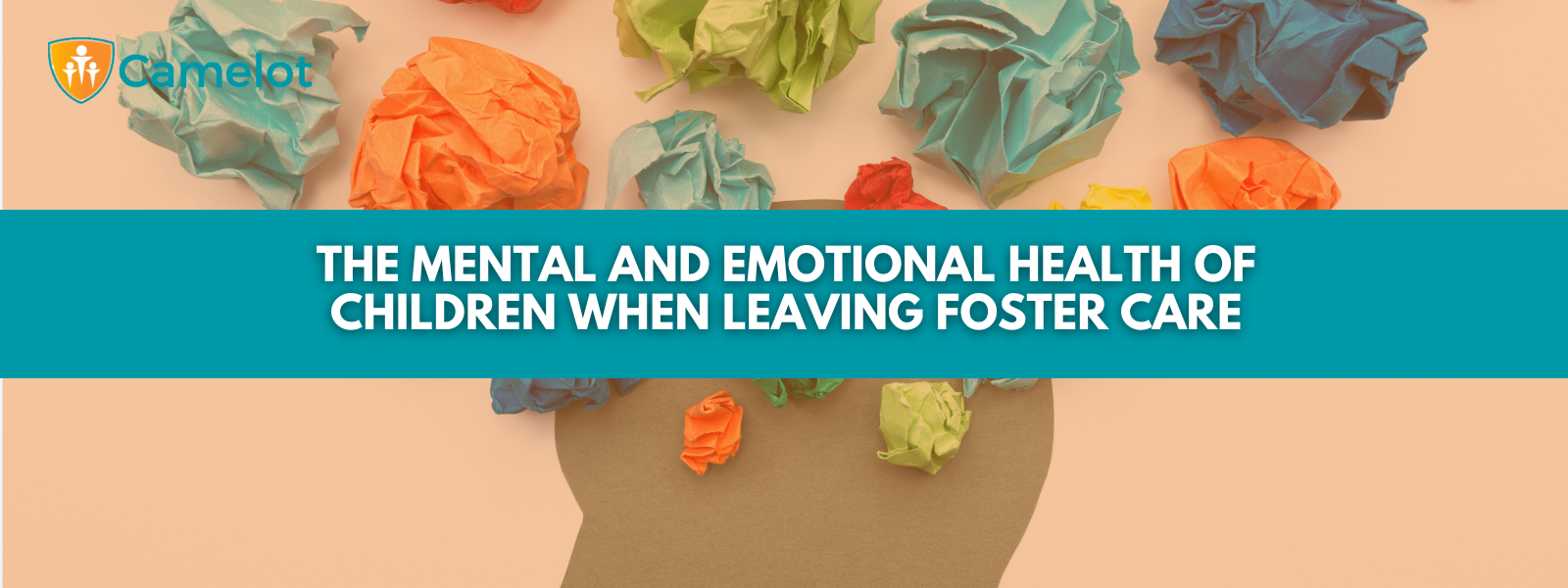Essential Healthcare Tips for Foster Parents: Ensuring Well-Being in Foster Care
Essential Healthcare Tips for Foster Parents: Ensuring Well-Being in Foster Care

Opening your heart and home to a foster child is an act of immense compassion and responsibility. You're not just providing a roof over their head; you're becoming crucial to their healing and development. This journey, however, requires fostering not just their emotional well-being but also their physical health.
Continue reading to learn about essential healthcare tips that can empower you as a foster parent.
Understanding the Spectrum of Well-Being
Children's health and wellness are holistic concepts covering various dimensions. Parents should understand that every child is unique and will have different health needs. Here's a glimpse at what this spectrum might look like:
- Physical Health: Proper nutrition, sleep, and exercise are vital to a child's well-being. As a foster parent, it’s necessary to meet your foster kid’s nutritional needs. You should also provide access to regular checkups, immunizations, and preventative care to address any underlying medical conditions.
- Mental Health: Foster children often experience emotional distress due to their experiences before entering care. Parents can start by managing their stress and anxiety. In addition, it’s important to create a nurturing environment that fosters resilience and self-esteem.
- Social and Emotional Health: The growth of a foster child is deeply connected to their social and emotional well-being. Trauma and grief may prevent them from developing strong bonds with others. You should actively work to develop and nurture their relationships. This can encourage healthy communication and interactions with others.
- Educational Success: Foster parents play a vital role in advocating for their foster child's educational needs and providing support to help them excel academically. This includes ensuring they have access to educational resources and positive learning experiences.
Healthcare Tips for Foster Children
Providing holistic care for your foster child requires a proactive approach. Here are some essential tips to take care of their overall health:
Regular Health Check-Ups
Foster children could have limited or no prior access to healthcare before coming to your home. As a result, they may have undiagnosed health issues that require attention. Regular health check-ups address immediate health concerns. Vaccinations and screenings can serve as an opportunity for prevention and early intervention. As a parent, you should have open conversations with the child to encourage them to express any discomfort they might feel.
Hygiene Practices
Teaching good hygiene practices promotes cleanliness and fosters a sense of self-care and responsibility. You can start by tailoring your approach to the child's age and understanding. Use positive reinforcement and demonstrate routines patiently. Make the activities fun by using songs, games, or visual aids. You should also avoid shaming or forcing children into unfamiliar hygiene routines. Understand that change takes time, and be patient.
An Accepting Environment
Make your foster home a space where the child feels safe and accepted. Encourage open communication about their feelings and experiences. Validating their emotions can increase trust and belonging, which is crucial for their well-being. You should also show empathy toward their past experiences. Creating a supportive environment helps foster children feel valued and understood, leading to positive mental health outcomes.
Nutritious Meals
A balanced home-cooked meal can support the overall well-being of foster children. It also creates a sense of warmth and family life. Children, especially those who have experienced trauma, may have difficulties with eating. They could have anxiety or emotional problems that can affect their eating patterns. In these cases, it’s necessary to consult a professional therapist or pediatrician to work through these issues. You should also check for dietary restrictions based on their medical or personal requirements.
Physical Activity
Encourage foster children to engage in regular physical activity. Regular exercise improves their physical health and mood while reducing stress. You can encourage children by planning fun activities like outdoor sports, biking, or dancing. Note that it’s necessary to focus on recreations catering to the children's interests and abilities. Adding physical activity to their daily routine fosters healthy habits that can last a lifetime.
Safety Measures
Create a secure environment within your home to prevent accidents and injuries. Childproofing the house, securing hazardous items, and setting clear boundaries contribute to the overall safety of foster children. You should also educate them about safety rules and procedures, like fire drills and emergency procedures. The aim is to empower them with the knowledge they need to protect themselves.
Medication Management
Foster kids may have ongoing medical requirements to manage physical or mental health conditions. As a foster parent, you should have a clear understanding of your child’s medical history, prescribed medications, dosage instructions, and potential side effects. In addition, you should have transparent conversations about drug use with the children. This can help kids who find it challenging to adhere to a medical routine due to past challenges.
Therapeutic Services
You should be open to consulting therapists and mental health professionals if needed. Therapeutic services allow children to identify and overcome the effects of past trauma. It also helps them break free of negative habits and coping mechanisms. Parents should be willing to learn from the professionals and help foster children through this process.
Education Support and Advocacy
Foster children may face unique challenges in the educational system due to disruptions in their lives. You should advocate for their educational needs by communicating with teachers, school counselors, and administrators. Creating a designated study area with the necessary supplies and resources is also important. If the child has difficulty learning, you can help with homework assignments and school projects.
Attending parent-teacher conferences and Individualized Education Program (IEP) meetings is another way to ensure they receive proper care and support. All of these steps can help create a positive and supportive learning environment.
The Importance of Self-Care
While providing care for foster children is a rewarding experience, it can also be emotionally demanding. Foster parents must prioritize self-care to maintain their overall well-being, allowing them to provide better care for their foster children. The following self-care tips can help you:
- Support Systems: Establish a support network of other foster parents, friends, or support groups. This allows you to share experiences and seek advice from others who understand your unique challenges. A support system can provide emotional support and validation, reducing feelings of isolation and burnout.
- Healthy Boundaries: Set boundaries to prevent feeling overwhelmed by the demands of foster parenting. It's okay to say no to additional commitments or requests that exceed your capacity. Prioritize tasks and responsibilities, focusing on what's most important for you and your family's well-being.
- “You” Time: Carve out time for yourself, even if it's just a short break. Make time for relaxing activities like reading, walking, or other hobbies. Carving out moments for yourself can let you recharge and maintain balance.
- Self-Reflection: Take time to reflect on your experiences as a foster parent. Acknowledge your successes and challenges, and identify areas where you can grow and improve. Self-reflection promotes personal growth and resilience, allowing you to become a more effective caregiver.
- Professional Support: Don't hesitate to seek professional support if you're struggling with the emotional challenges of foster parenting. Therapists, counselors, or support groups specializing in foster care can offer valuable guidance and assistance.
Key Considerations
Navigating foster kids' healthcare needs and requirements requires a well-informed and proactive approach. Consider these factors to ensure you provide the best possible care:
- Trauma-Informed Care: Trauma plays a major role in foster parenting. That’s why every parent must approach caregiving from a trauma-informed perspective. This involves understanding the impact of trauma on a child's development and behavior and adjusting caregiving strategies accordingly.
- Communication with the System: You should collaborate closely with healthcare professionals, social workers, therapists, and educators. Regular communication and teamwork let you address all aspects of a child's well-being comprehensively. In addition, you can grow as a parent with their training and support.
- Cultural Sensitivity: Foster children come from diverse backgrounds and cultures. Therefore, it’s necessary to understand their unique needs and values. It’s especially important to know how trauma and mental health issues can manifest in different cultures. This can help you respect and honor the child's cultural identity and traditions while addressing their health needs.
- Community Resources: Tennessee offers a range of community resources for foster kids’ health and wellness. These include mental health support, counseling, adoption services, foster care support, and wellness programs. The state also provides a one-stop shop for foster families called KidCentral. This platform lets you access vital information, get parenting tips, and track child milestones.
- Confidentiality: Respect and protect the privacy of your foster children’s medical needs. You should keep medical records private and share them only with those involved in the child's care. It's also essential to teach kids their privacy rights and how they can advocate for themselves in the healthcare system.
Creating a supportive healthcare environment for foster children requires constant dedication and empathy.
Camelot Care Center understands this journey's complexities, helping you become a knowledgeable parent. We have a long history of supporting foster parents in Tennessee. Our expertise and commitment to our communities make us the perfect partner in your child's healthcare journey.
Contact us to learn how we can help!





Camelot Care Centers






